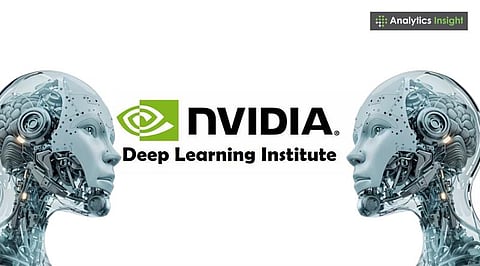

What’s New Today: Tech giants build custom XPUs to reduce Nvidia reliance, improve efficiency, and capture share in a trillion-dollar AI market.
Fast-Track Insights: Veridox raises £1M to launch an explainable AI platform, helping insurers detect fraud faster with contextual insights and court-ready forensic analysis.
Here’s a quick rundown of the biggest tech headlines making waves today. Let's dive into the day's top tech stories, from tech giants developing custom XPUs, challenging Nvidia's dominance, to Trump’s $100K H-1B fee disrupting Indian talent.
Nvidia dominates 80% of the AI chip market, but Google, OpenAI, Tesla, and Amazon are developing custom XPUs to reduce reliance and boost efficiency. Analysts highlight Nvidia’s true edge lies in CUDA software. Customization enables cost control, avoids vendor lock-in, and optimizes power use. With AI chip revenues projected to hit $1 trillion by 2030, challengers aim for leverage rather than overthrowing Nvidia’s dominance.
Manchester-based Veridox has raised £1 million in seed funding to combat insurance fraud using explainable AI. Founded by Dan Sandler and Joey Clover, the company’s platform detects manipulated documents and images with forensic precision, providing contextual explanations for investigators. Veridox partners with 15 UK insurers, plans to expand its 13-member team, and aims for a full market launch later this year to improve fraud detection efficiency and accuracy.
President Trump’s decision to raise the H-1B visa sponsorship fee to $100,000 is reshaping opportunities for Indian STEM graduates and early-career professionals. While tech giants like Nvidia and OpenAI can absorb the cost, startups and mid-sized firms may reduce hiring. The policy adds stricter documentation requirements and delays, creating intense competition and threatening career timelines, internships, and sponsorship opportunities for thousands of Indian tech workers entering the U.S. workforce.
AI orchestration integrates AI models, data pipelines, and automation tools into a unified system for efficiency and scalability. Orchestration platforms enable integration, automation, and management, ensuring compliance and reducing human intervention. Benefits include improved performance, governance, and troubleshooting, although challenges such as legacy integration, security risks, and talent shortages persist. Industries such as healthcare, fraud detection, retail, and supply chain leverage AI orchestration, with future platforms promising more adaptive and intelligent workflows.
Twelve Senate Democrats, including Gillibrand, Booker, and Warner, are demanding equal authorship in shaping the Republican-led crypto market structure bill. Their framework calls for closing regulatory gaps, clarifying the roles of the SEC and CFTC, and preventing illicit finance. Republicans aim to finalize legislation soon, but may delay markup to incorporate Democratic input. Divisions persist, with some Democrats skeptical of industry influence, leaving the bill’s fate uncertain as a full Senate vote approaches.
